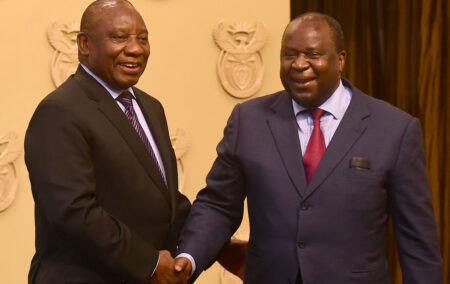While emerging markets were expected to achieve average economic growth of 5% between 2021 and 2023, South Africa’s target was to reach only 1.5%, about a third of that of its peers among emerging market economies, said IRR CEO Frans Cronje.
Speaking in a live-streamed discussion on Wednesday evening after finance minister Tito Mboweni’s Medium Term Budget Policy Statement (MTBPS), Cronje pointed out that, as Treasury’s growth forecasts had been historically off by an average of 50%, the government’s GDP forecasts of 3.3% in 2021, and 1.7% in 2022 were likely to be overly optimistic.
Warning that GDP growth of 3.3% in 2021 shouldn’t be considered a recovery, Cronje said that comparing South Africa with other emerging markets illustrated just how low Treasury’s expectations were.
The live-streamed discussion between Cronje, IRR Head of Policy Research Dr Anthea Jeffery, and researcher and analyst Gabriel Crouse, and hosted by IRR Deputy Head of Policy Research Hermann Pretorius, offered an immediate response to the MTBPS delivered earlier.
In a statement yesterday, the IRR summed up the core takeaway from the discussion: ‘The South African government has run out of money. To sustain its ideological pursuit of the National Democratic Revolution (NDR), an unashamedly Leninist project to convert free or mostly free economies to socialism and ultimately communism, and to fuel the vast patronage machinery underpinning its fragile unity, the governing SACP-ANC alliance has turned to grabbing assets through expropriation and the fundamental erosion of property rights.’
Jeffery noted in the discussion that the ANC, in coalition with the South African Communist Party (SACP), had a historic and long-standing commitment to the NDR. The two parties were hostile to prosperous free markets and in favour of policies that had had severely detrimental consequences for the South African economy and the middle class. Jeffery argued that this was not political coincidence, but a fundamental NDR policy of ensuring broad opposition to so-called capitalist failures and ever greater reliance on the state as the economic engine of the country.
Emphasising the risk posed by the government’s determination to press ahead with expropriation, Pretorius said: ‘The reality is that South Africa can have a future or EWC – not both. South Africa can have jobs, good schools, service delivery, investment, economic recovery, upward social mobility, a fighting chance to win the fight against corruption, real land reform – or we can have EWC. Not both.’

